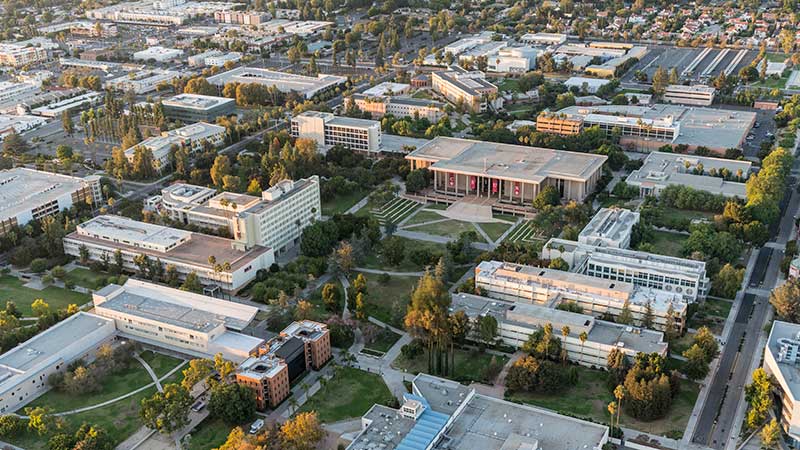Students across the U.S. are rightfully demanding that colleges and universities go beyond listening to seriously address decades of racial inequity. As one Missouri student leader put it: “(My school) is making some change, but I won’t really give them a win until I start to see institutional change.”
A new report from Equal Measure, a national nonprofit based in Philadelphia that provides evaluation services to foundations and other groups, shows how Talent Hubs and its higher education partners go deeper than conversation and advance equity through policy and practice.
Talent Hubs are communities recognized for their special efforts in attracting and cultivating workforce-ready talent, with a special focus on people of color and others who face tough barriers to learning. The Talent Hubs program was begun by Lumina Foundation and is now run by CivicLabs.
Talent Hubs from Fresno, Calif., to Dayton, Ohio, are showing how colleges, universities, and their partners can solve complex issues to improve lives. Their stories illustrate how a focused approach to equity must include strategies that result in new solutions to better serve today’s students. Equal Measure’s report suggests three areas for action:
First, explore core beliefs
CivicLab’s research on social systems shows that “if it remains invisible, it remains unsolvable.” Too often, core beliefs about equity are hidden and excluded from change efforts. Institutions can take these steps to change that:
- Document the problem. Using disaggregated data, document the root issues causing inequitable outcomes. Hard data helped Talent Hubs begin to change mindsets.
- Don’t work alone. System problems require system solutions. It’s essential to work across departments, beyond traditional silos, and with outside partners.
- Make biases visible. The mindsets of an institution’s staff and leaders can accelerate or impede change. Make these mindsets visible–by using strategies like focus groups, data walks, diversity training, and strategic storytelling–so can they be embraced or changed.
Those guidelines helped solve a problem in Los Angeles. Three LA Community College District (LACCD) campuses and California State University Northridge (CSUN) worked together to re-enroll Hispanic and Latino students who left CSUN when they were academically disqualified after their first year. The combination of unclear reverse transfer policies, unconnected data systems, and a lack of proactive advising created a significant barrier for students desiring to re-enroll. To address this, the Los Angeles Talent brought campus leaders together to clarify policy and connect data systems to identify students in need of immediate support. Counselors, armed with new information and data, reached out to those students, encouraging enrollment at one of three LACCD campuses. Upon completing a transfer course at the community college, students were re-admitted at CSUN.
Second, add “fuel” to ignite change
The fuel needed to ignite equitable policy and practice improvements includes:
- Strong leadership support
- Alignment with institutional and community goals and priorities
- Resources to sustain and broaden changes.
For instance, when Madera Community College near Fresno achieved full college status in 2020, Madera President Angel Reyna decided to put equity at the heart of the school’s mission. The school then created a powerful equity committee to ensure that decisions are inclusive and lead to fair and equitable results.
Beyond leadership support, institutions also need partnerships and resources to drive change. In Dayton, Ohio, led by Learn to Earn Dayton, staff at college campuses, high schools, and nonprofits were trained as “equity champions.” They take an equity-first approach, dismantle barriers to learning, and provide feedback to leaders. In this unique program, costs, staffing, and physical space are shared among partners. Early results show the program is helping students of color enroll and succeed in school.
Finally, take action
Equity-focused institutions invest substantial time and energy in one or more of these paths to positive change:
- Engage students and communities
- Find and eliminate root causes of inequities
- Act on disaggregated data
In Columbus, Ind.,–another Talent Hub site–three local organizations serving Hispanic and Latino communities are working with city leaders to support these students. They are helping people connect to the “Powerhouse Credentials Crosswalk”–which links adult education courses, local colleges, and technical schools to credentials for in-demand jobs. Together, the partners are reducing learning gaps, adding English Language courses, and providing much-needed career resources.
Lighting the way
Change like this forces us to challenge comfortable narratives. So, we need to dig deeper, ask more questions, shift power, try new solutions, and focus intently on the voice of students.
Another Talent Hub student focus group respondent put it like this: “My goal is to make sure that things are actually being done, that steps are actually being taken. Because diversity and inclusion chats–they don’t really do anything unless we’re actually taking the action.”
Students and their families are counting on us, and they want less talk and more action. Talent Hubs are lighting the way for urgently needed change across higher education. With these lessons in mind, we will build a more equitable future.
